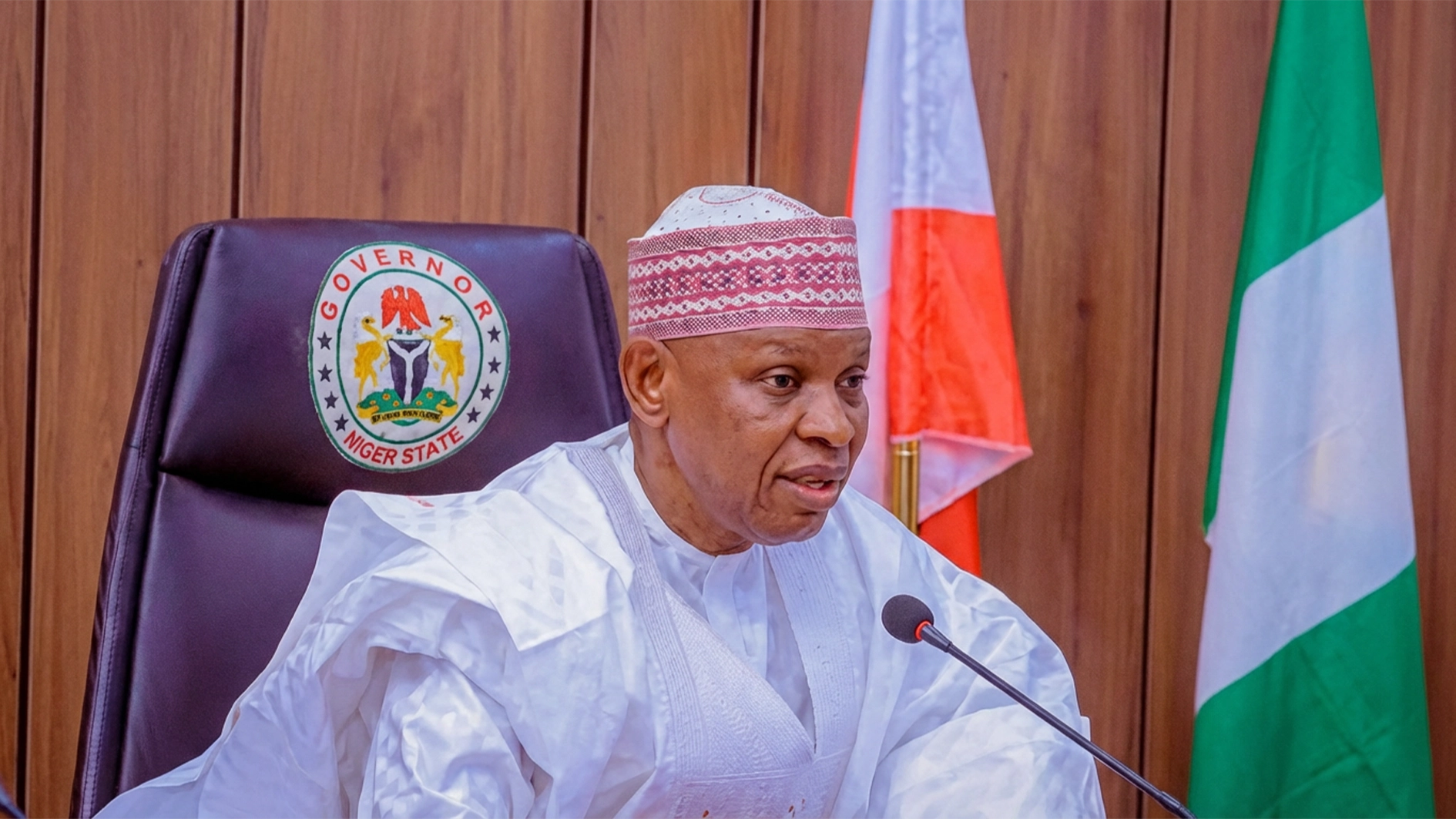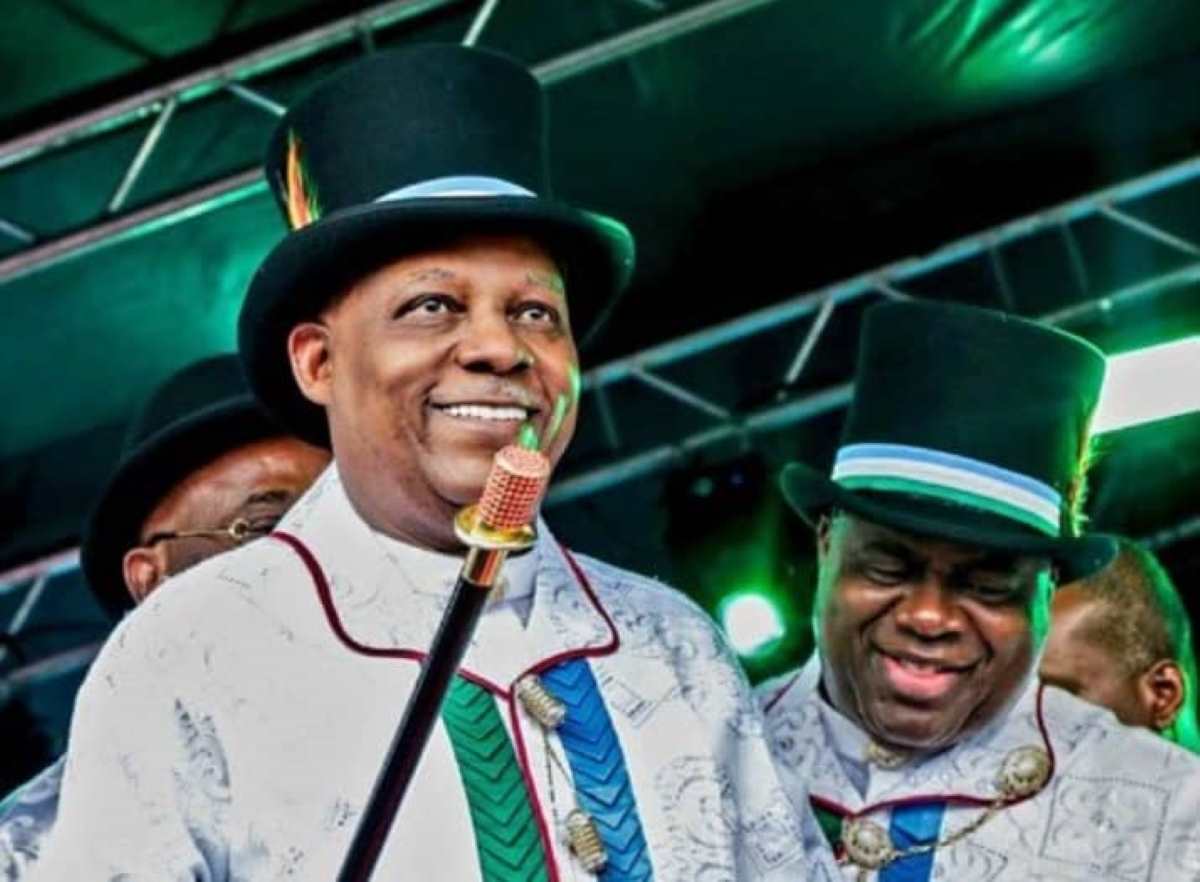Despite mounting objections from stakeholders and civil society groups, Rivers State is pressing ahead with the August 30, 2025, local council elections. Concerns over constitutional questions surrounding the role of a Sole Administrator in conducting the polls appear to be receding, even as fresh implications emerge, ANN GODWIN reports.
Less than two days to the scheduled August 30, 2025, local government elections in Rivers State, controversies have continued to mount over the planned polls.
Besides the confusion over the 90-day notification period expected from the Rivers State Independent Electoral Commission (RSIEC), led by Dr Michael Odey, which instead gave only 21 days’ notice, lawyers, stakeholders and civil organisations have insisted that it is impossible for a military administrator to conduct a democratic election.
They argued that the Sole Administrator, Vice Admiral Ibok-Ete Ibas (rtd), lacks the constitutional powers and legitimacy to do so.But despite sentiments about the constitutionality of the council polls, the Rivers State Police Command has gone ahead to announce restrictions on movement from 12 noon to 6.00 p.m. on election day.
According to the State Commissioner of Police, CP Olugbenga Adepoju, the election is crucial, and adequate security personnel have been deployed to ensure the safety of lives and property before, during and after the exercise.
Political observers have expressed concern that the hurried conduct of the council polls, though generating buzz, is actually an underground political scheme to capture Rivers State ahead of 2027, by ensuring that if suspended Governor Siminalayi Fubara returns to office next month, he will not have full control of the party structure.
But while relevant authorities appeared to have made up their minds to go ahead with the polls, critical stakeholders within and outside the state have continued to raise constitutional questions.
Stakeholders and legal experts have pointed to several grey areas in the process, particularly as it will be conducted under the supervision of a Sole Administrator, following the suspension of the governor.
The 1999 Constitution, under Section 7(1), asserts that “the system of local government by democratically elected local government councils is guaranteed under this Constitution.”
The appointment of a Sole Administrator, which is not recognised by the Constitution, has therefore raised concerns. Critics note that any electoral process conducted under such supervision could face legitimacy challenges before the courts.
Another issue that arises from the emergency regime is that Section 305 of the Constitution empowers the President, with National Assembly approval, to declare a state of emergency. However, the conduct of elections under emergency conditions raises questions about whether constitutional guarantees of political freedom, fairness, and security can be fully exercised.
The mandate of the Rivers State Independent Electoral Commission (RSIEC), established under the Constitution and the Rivers State Electoral Law, is also under scrutiny. Local Section 197(1)(b) of the Constitution provides for State Independent Electoral Commissions to conduct local government elections. Concerns have emerged about the neutrality of RSIEC operating within a temporary administrative arrangement.
The suspension of the state governor further complicates matters. Under Section 176(2), executive powers of a state are vested in the governor. With that authority currently in dispute, any decisions relating to the conduct of elections may face legal contest, especially if taken without clear constitutional backing.
Timing is another concern. The Electoral Act 2022, Section 28(1), requires at least 90 days’ notice before general elections. While state electoral commissions are not strictly bound by this federal provision, the principle of adequate notice and preparation is constitutionally implied under the right to participate in political processes. A hurried timetable could therefore raise questions about inclusivity and fairness.
The Constitution protects rights to association and political participation under Sections 40 and 42. If the prevailing political environment discourages voter turnout or restricts fair competition among political parties, such polls could be deemed inconsistent with these guarantees.
The Sole Administrator, Ibas, was sworn into office on March 19, 2025, as an interventionist measure to rectify the lingering political crisis in the state.
But some of his policies since assuming office, such as the inauguration of the RSIEC board and moves to conduct the polls, have provoked arguments and raised concerns.
Though the 1999 Constitution clearly states that local governments should be governed democratically, President Bola Tinubu, realising this, swiftly amended a gazette to give powers to the Sole Administrator to carry out the functions, though the matter is still being debated.
Piqued by the development, the Civil Liberties Organisation (CLO), Rivers State chapter, sued the Sole Administrator and the state government to determine if Ibas has the constitutional right to supervise and set up the RSIEC members to conduct elections.
According to the group, the decision followed the administrator’s actions, which, they argued, amount to a clear breach of established laws of the country.
In light of the foregoing, there are mounting concerns that voter apathy could shape the outcome of the polls, as many residents remain disenchanted with the unfolding political developments.
Some residents have demanded that the suspended governor be reinstated to office to perform his duties and conduct the council polls.
Confusion reigns as parties field multiple candidates
The All Progressives Congress (APC) has reportedly submitted names of two candidates each from the 23 local government areas, representing its two factions.
The APC, led by Tony Okocha, after its primaries, submitted candidates made up largely of defectors from the Peoples Democratic Party (PDP) to the RSIEC. The APC faction led by Emeka Beke also claimed to have submitted its own list of candidates to the electoral body.
Beke, who earlier rejected Ibas’ authority to conduct council polls as a Sole Administrator, insists that all votes cast for APC candidates belong to his group, since no court has invalidated his chairmanship position. He cites the August 2024 Rivers State High Court ruling that recognised him as APC chairman, even though the party’s National Executive Council declared Okocha as the authentic chairman.
It was also gathered that two factions of the Labour Party (LP) have fielded candidates for the polls following fresh leadership divisions unsettling the party. Former LP chairman, Favour Rueben, confirmed the development, but former LP spokesman, Gogo Wellington, disagreed, arguing that the candidates being fielded are not legally recognised.
Wellington further stressed that the local government elections should not even happen under the current dispensation, and as such, the Labour Party would not participate.
Other parties preparing for the elections include the newly formed African Democratic Congress (ADC), All Peoples Party (APP), and the PDP, among others.
Lawyers differ
Some legal practitioners in Rivers have, however, differed on the legitimacy of a Sole Administrator conducting the council polls. A lawyer, Living Jamala, queried where the President derived the powers to suspend a democratically elected governor.
“In all the provisions of the Constitution, even with Section 305 (3 & 5), which the President relied upon, there is no provision to suspend a governor,” Jamala said. He argued that Section 7 of the 1999 Constitution gives state Houses of Assembly the responsibility of making laws for governance, administration and finance of local governments. The Rivers State Local Government Law No. 5 of 2018, he explained, regulates how elections should be conducted, including the qualifications of candidates.
“The power to appoint the RSIEC Commission Board is vested in the governor, subject to confirmation by the State House of Assembly. Nowhere was it foreseen that a President could arrogate to himself the power to suspend a governor and appoint a Sole Administrator,” Jamala said. He maintained that the processes of appointing a Sole Administrator were wrong, lamenting that the judiciary has refused to take a stand.
He regretted that several cases pending at both the Supreme Court and the Federal High Court challenging such actions have not been heard for over six months. He insisted the onus is on the judiciary to restore the dignity of democracy in Nigeria.
“But where the judiciary has failed, then democracy itself has failed,” he declared. “In the military environment, elections are ordinarily taboo. In a military regime, an election becomes a treasonable offence to even mention. It decrees one man’s authority.
“In a democratic society, decrees are also taboo. There is no provision whatsoever that gives the President the power to suspend sections of the Rivers State Local Government Law and suspend the electoral body created by the Constitution.”
The legal practitioner described the current arrangement as a direct abuse of the Constitution and an affront to democratic principles. Another lawyer, Wori N. Wori, however, insisted that the Sole Administrator has the right to conduct the council polls. He said: “Those kicking against it are entitled to their opinions. Political parties are already gearing up for the elections.”
But there is no pronouncement of the court, as we speak, nullifying his authority. “There is currently an emergency rule in operation in Rivers State, with a Sole Administrator appointed to oversee affairs, unlike in other states where governors are elected. This shows that the situations are not the same. People may say whatever they like, but I believe the election will still hold, and there is nothing wrong with that.”
Fears of voter apathy
Some residents are already voicing concerns over the credibility of the polls. While some alleged that results have already been printed, others said the RSIEC board lacks the capacity to conduct free and transparent elections, given the manner of its composition.
Mrs Elizabeth Konya, a stakeholder, declared that she and her household will not vote until democratic institutions are restored. But Mr Nnadi Ikechi said he is mobilising others to come out en masse to vote.
For Mrs Caroline Nwuche, the situation reflects impunity and a lack of accountability. Meanwhile, the Chairman of the Action Democratic Party (ADP), Kendrick Christian, expressed fear that voter apathy may mar the polls.
Keen political observers are watching to see how events unfold on Saturday, whether the President will adhere to the rule of law and make a U-turn to avoid a legal vacuum and instability, or proceed with the polls as slated.
As preparations continue, the constitutional issues raised remain central to the legitimacy of the elections in Rivers State, with stakeholders watching closely how they will be addressed.
Besides the confusion over the 90-day notification period expected from the Rivers State Independent Electoral Commission (RSIEC), led by Dr Michael Odey, which instead gave only 21 days’ notice, lawyers, stakeholders and civil organisations have insisted that it is impossible for a military administrator to conduct a democratic election.






